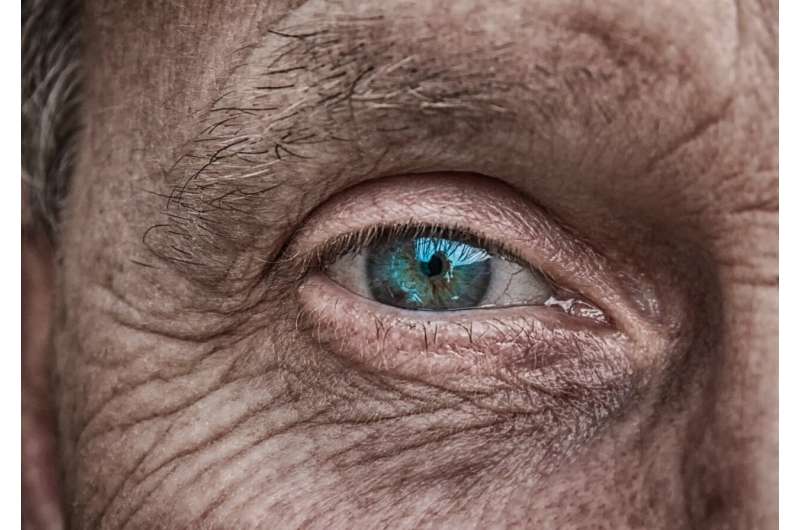Vision loss due to AMD: discovery of a blood biomarker to assess the diet-related risk

Age-related macular degeneration (AMD) is the principal cause of vision loss in industrialized countries, with nearly 20 million people affected in Europe in 2020. Although identified as a risk factor, until now it was impossible to evaluate retinal omega-3 fatty acid deficits. A research team involving scientists from INRAE, INSERM, Université Jean-Monnet Saint-Etienne, Université de Bordeaux, ITERG and Dijon-Bourgogne and Bordeaux University Hospitals has recently identified a blood biomarker that can predict retinal levels of omega-3 fatty acids. These results, published on 30 June in Clinical and Translational Medicine, open new perspectives for the dietary prevention of risks related to this disease.
Age-related macular degeneration (AMD) is a chronic disease that affects the central zone of the retina—the macula—and causes gradual loss of vision. It is the leading cause of sight loss among people aged over 50. Current treatments for AMD can only slow the progression of certain forms of this disease. For this reason, preventive strategies are of crucial importance. Risk factors that offer levers for action include a retinal insufficiency in long-chain omega-3 fatty acids; these lipids are supplied via the diet and notably from fish. They play an essential role because they assure vision in retinal photoreceptors; they also have anti-inflammatory functions, and limit cell death and abnormal vascular development in the retina, three mechanisms crucial to preventing AMD. Nutritional approaches based on supplementation with omega-3 fatty acids have been developed to prevent or limit AMD, but assessment of their efficacy has been hampered by the impossibility of determining fatty acid levels in the retina. The research team therefore focused on identifying blood markers that would enable these measurements.
A blood biomarker to enable the early identification of people at risk of AMD
By analyzing retinas and blood samples from 46 human donors, the scientists were able to identify the blood biomarker for retinal omega-3 fatty acid status using an algorithm developed by machine learning. They then combined the analysis of retinas from human donors and the data from two population studies; one study to assay the blood biomarker in 62 participants from the "3-Cités" cohort, and a clinical study (LIMPIA) in 110 participants, half of whom received dietary omega-3 fatty acid supplementation. Thanks to these studies, the scientists were able to show that high levels of the blood biomarker were associated with a lower risk of having an advanced form of AMD, and that biomarker levels rose after omega-3 fatty acid supplementation.
At a very early stage, this biomarker would be able to identify people at risk from developing AMD before it can be detected by ophthalmological examination. Once identified, at-risk individuals could thus receive dietary support. A patent for this biomarker to predict retinal omega-3 fatty acid status, and the predictive algorithm, has been filed by INRAE and INSERM, and the research team is currently developing a standardized and simplified assay method so that the biomarker can be included in assessments for the risk of developing AMD under a personalized medicine approach.
More information: Niyazi Acar et al, Predicting the retinal content in omega-3 fatty acids for age-related macular-degeneration, Clinical and Translational Medicine (2021). DOI: 10.1002/ctm2.404

















